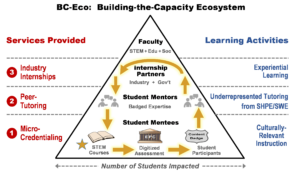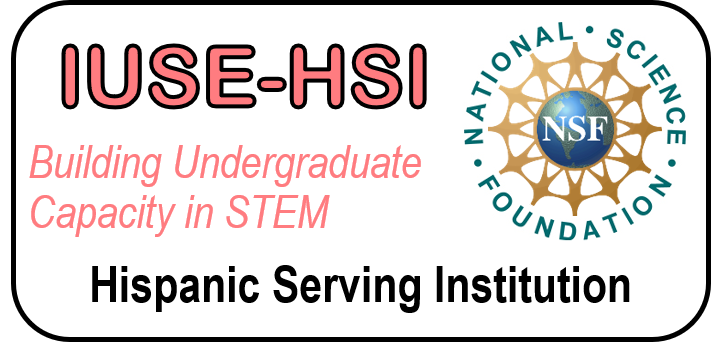EPC Tutoring Webform: complete form at the link for consideration to participate
EPC Tutoring form
Undergraduate students who have completed selected courses in previous semesters which deliver their assessments using EPC complete this webform for consideration of peer learning participation:
• A limited number of stipends of $2500 are available to participate in a National Science Foundation supported project.
• Recipients of stipends will participate in peer tutoring activities with students enrolled this semester in those courses using the EPC.
• Tutoring occurs in-person during pre-set hours in the EPC Proficiency tutoring room. Namely, there are 10 hours per week arranged in advance which can accommodate the schedule of each participant. Participants can interact with graduate assistants who provide specific problems with solutions that enrolled students who make an appointment to review one-on-one with participants.
• The emphasis is on learning and helping other students learn material from assessments (quizzes and exams) which they have already taken and already were graded, based on resources provided and already available. No homework tasks are required. Participants also may find ways to improve question formats/contents used within the course and communicate directly with graduate assistants in each course.
• Participants will receive training on culturally-relevant delivery.
• Participants have opportunities to provide their feedback on the process and about enhancing learning at UCF.
• Participants may also become eligible for consideration a limited pool of monetary internship supplements during qualifying internships in industry.
The project aims to develop, evaluate, and iteratively refine a novel, scalable, and transportable educational ecosystem for building STEM capacity at HSIs.
The Building-the-Capacity Ecosystem (BC-Eco) project advances culturally-relevant instructional approaches which will be facilitated through the micro-credentialing of 9,500+ students annually, whose demographics include: 26% of students who identify as Hispanic and 12.1% as African American, as well as 19% women within STEM programs. The BC-ECO project will:

- determine the effects of graduate and undergraduate faculty, teaching assistants, and peer mentors trained in culturally-relevant teaching approaches on learning, engagement, and degree attainment;
- evaluate and refine the deployment of an innovative assessment infrastructure to promote student learning, retention, advancement, and graduation of students from HSIs;
- create an automated micro-credentialing tool that would provide access to community internships while developing student self-efficacy; and
- develop culturally-relevant curricular materials to train STEM faculty, GTAs, and peer tutors.
